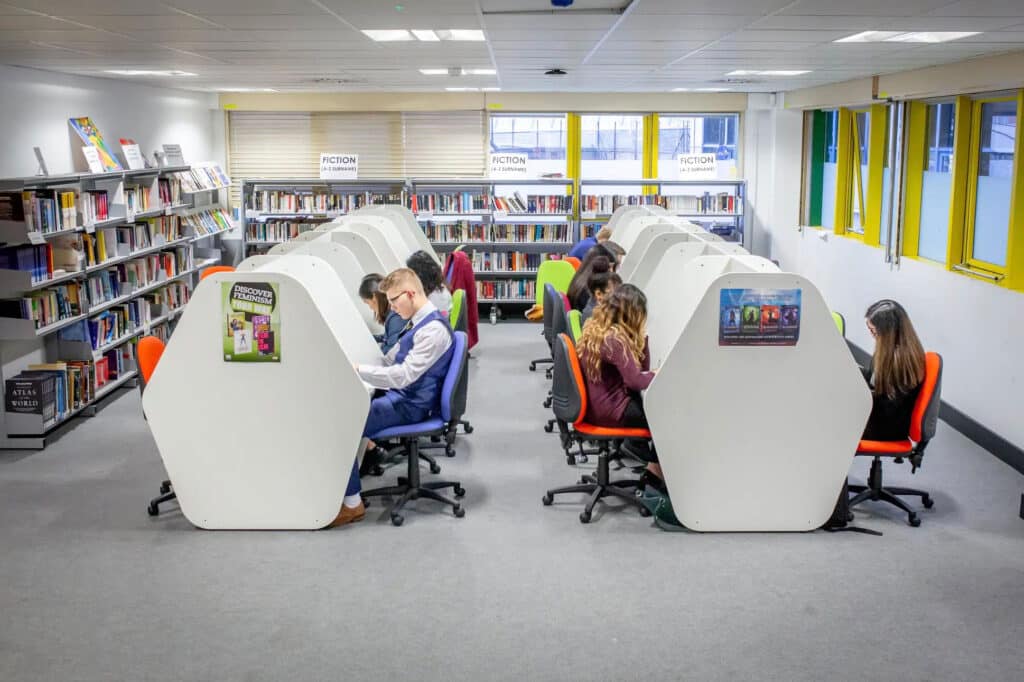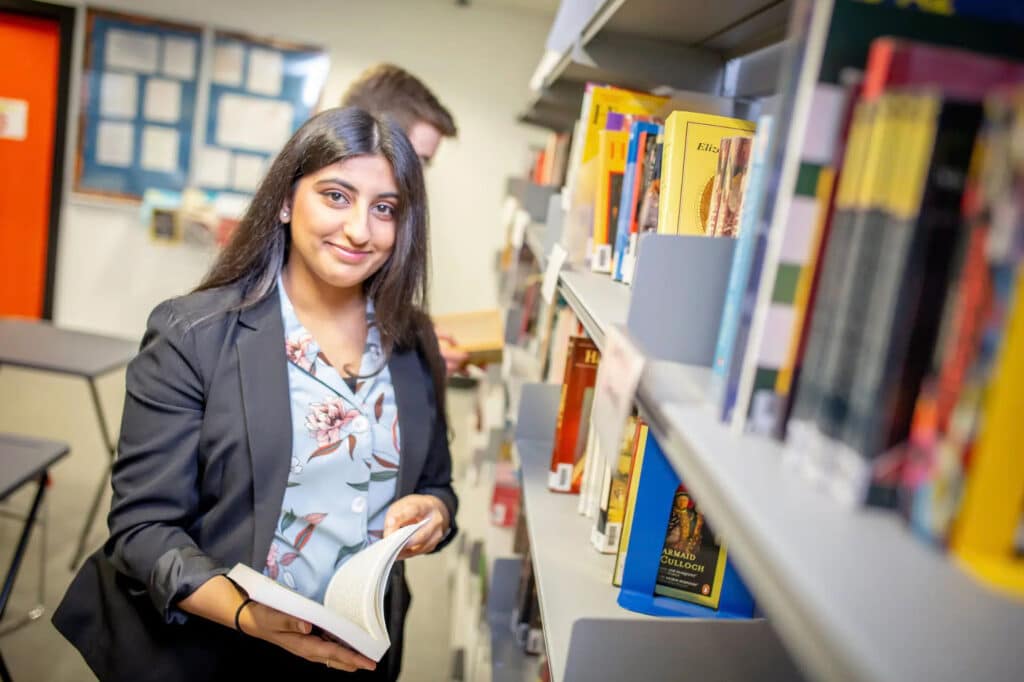Learning gaps remain stubbornly persistent across the world, even in wealthy economies such as the UK where it will take 560 years to close the attainment gap at GCSE and university. Generations of talent could be squandered if this is not fixed. It is in this context that Alex Crossman, Headteacher of the London Academy of Excellence, which was a Top 3 finalist for the World’s Best School Prizes in 2022 for its pioneering work, and Ian Warwick, a leading international figure behind the London Challenge and an expert in raising achievement across sectors, have written Greater Expectations: Enabling Achievement for Disadvantaged Students as “an antidote to this bleak narrative”.
Their new book explores how the London Academy of Excellence has, over the last decade, transformed the lives of so many students from highly disadvantaged backgrounds. Today, this state school in East London sends more students to Oxbridge than most private schools.

Sitting down with co-author Alex Crossman, he tells me what inspired him to write the book and how he hopes it can help other schools around the world achieve what the London Academy of Excellence has.
Greater Expectations

“We felt there was an awful lot of exceptional practice at London Academy of Excellence, but a lot of it was undocumented practice, just a sort of the day-to-day reality of the school,” says Crossman. “A lot of that needed to be captured and shared, but also captured and shared in a way that wasn’t triumphalist.”
Crossman says that there are aspects of the school’s success that are idiosyncratic and the book makes this clear, as it does the things it has got wrong over the years. But what he wanted to do was set out the principles that have transformed lives.
The challenge for the London Academy of Excellence
The London Academy of Excellence serves a highly deprived area in East London, with a third of its students receiving free school meals – well above the national average.
“But our expectations of those students, their eventual destinations and their eventual outcomes, you would find in the highest performing independent schools in the UK or anywhere,” says Crossman.

“If there’s one big idea, I think the big idea is to embrace breadth,” Crossman adds. “A great deal of school improvement strategies in the UK context of the last 10, probably 20 years, has been based on the implicit assumption that if you are going to get regular kids from low-income backgrounds qualifications, you do that by sacrificing everything else and you narrow the focus of your curriculum, whether that’s through removing subjects that don’t have an obvious employability route, or simply pedagogically and teaching to the test. We felt very, very strongly that is simply wrong.”
Crossman is quick to point out that doing so only puts a cap on young people’s aspirations. Instead, he wants to think much more broadly, and seek achievements on a wide range of fronts to expand their horizons.
Ten strategies to drive greater expecations
Another central lesson in the book is to value achievement in its own terms. To see learning as a positive social good, rather than in a transactional way that focuses on memorising material for exams in ways that aren’t really understood and remembered into the future.
These principles underpin some of the 10 strategies to drive greater expectations set out in the book.
Another is to “destigmatise disadvantage”.
“So to ensure that the students feel safe and comfortable declaring their disadvantage in order that you can provide really high-quality support so that they can overcome it,” Crossman says.
There is also a chapter on curriculum delivery and how the school wants its teachers to be passionate subject experts.
“We want our teachers to have a sense of what it is to teach this subject domain, rather than the specification that they happen to be working to, to transmit that enthusiasm.”
Beyond exam factories

London Academy of Excellence more than lives up to its name in terms of academic achievement. But Crossman points out success comes with assumptions. Getting so many students into Oxbridge once left some assuming they are just an exam factory.
London Academy of Excellence more than lives up to its name in terms of academic achievement. But Crossman points out success comes with assumptions. Getting so many students into Oxbridge once left some assuming they are just an exam factory.
Nothing could be further from the truth. One of the secrets to the school’s success, which saw it named a finalist for the World’s Best School Prizes, is its trailblazing wellbeing programme. After studying rigorous research on mental health that showed student wellbeing has a strong impact on attendance and attainment, the London Academy of Excellence launched a comprehensive Wellbeing Strategy focused on improving its students’ healthy habits, behaviour, knowledge and skills.
The school worked with a local university, which sent a team of psychology students to provide all its Year 12 students with a dedicated course on strategies to improve wellbeing. The school also ran a bespoke Wellbeing Ambassador training programme for its student-led Mental Health Network, equipping them with the knowledge and skills to provide peer support. To boost attendance, the school trained staff on how to build resilience in students through coaching and instilling a mindset that being in school is essential to their future success, with the aim to empower students to overcome obstacles to being within school.
The London Academy of Excellence was guided by the principle that positive student wellbeing results in a wider awareness of their environment, which enables them to develop creativity, solve problems, and utilise the skills they need to be healthy and successful. The strategy proved effective, boosting attendance and in turn the number of A* and A grades.
Being named a finalist for the Prizes gave huge attention to the school’s methods and how it goes far beyond simply getting students to excel in exams.
Application across contexts
The purpose of Greater Expectations is to take the lessons of the London Academy of Excellence and apply them across any context to help all schools both in the UK and other countries around the world.
As we speak, Crossman is in China meeting a number of schools who do extraordinary work.
“Are they doing exactly the same things we’re doing? No, but they’re doing things equally valuable and there’s an awful lot of overlap there in terms of a holistic philosophy of education and actually increasingly thinking about that quality of education, that breath of Education, which can be spread more widely across the society.”
Prioritising teacher wellbeing and school culture
Another key to the London Academy of Excellence’s success is how it supports teacher wellbeing in its school culture.
The school has slightly shorter terms allowing teachers to have a reading week.
“It is a space and time for colleagues to continue to develop their subject expertise and continue to develop their pedagogy,” Crossman says.

Trilogy
Crossman is currently working on the next book in what is intended to be a trilogy.
“Obviously this is a book which hopefully has some sort of generalised principles and transferable learnings, but it’s very definitely rooted in the experience of one school and the intention by way of follow-up is that we are going to profile schools in 10 different countries around the world,” Crossman says. “Each of which is doing something quite exciting with the curriculum. I won’t pretend that we’ve selected all of those 10 schools as yet, although we have some pretty good ideas, but that’s what we’re working on this year.”
In the meantime, readers can hear more of Alex Crossman’s insights at the World Schools Summit in November.



